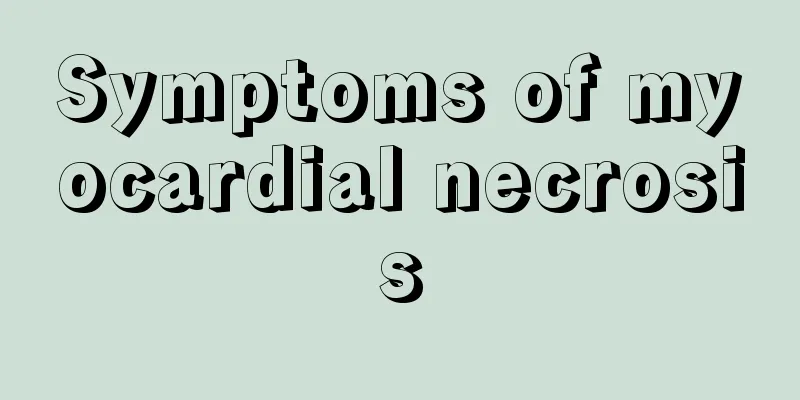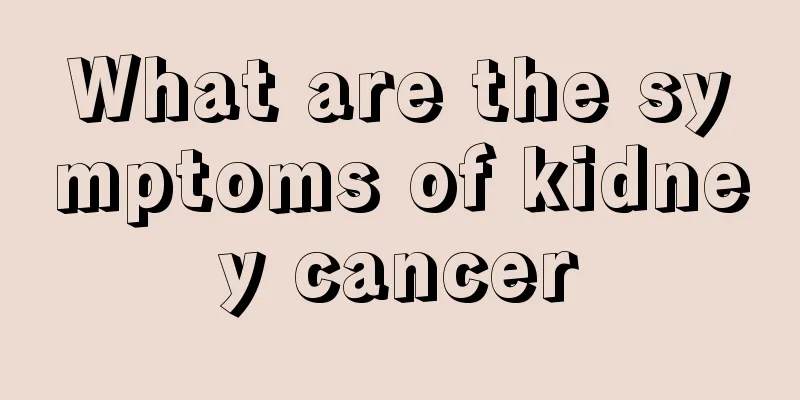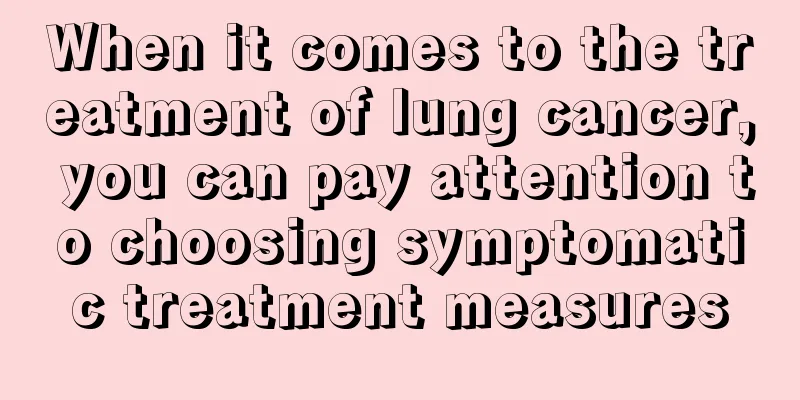Symptoms of myocardial necrosis

|
Heart disease is the most serious disease problem in the human body, because once the heart is diseased, it endangers human life. Myocardial necrosis is a disease symptom in which the human heart has been severely damaged. The harm of myocardial necrosis threatens human life safety, so it needs timely examination and treatment. The cause of myocardial necrosis is mostly due to abnormal heart rate. So what are the symptoms of myocardial necrosis? 1. Pain is the earliest and most prominent symptom, located in the precordial area, behind the sternum, left shoulder and back, and even teeth, upper abdomen, under the xiphoid process, etc. The degree is severe and lasts for several hours or days. There is usually no inducement, and rest and sublingual nitroglycerin cannot relieve it. The patient has fear and a sense of impending death. 2. Arrhythmias often occur within 1-2 weeks of onset, most commonly within 24 hours, with ventricular arrhythmias being the most common. 3. Hypotension and shock: Blood pressure may drop during pain. If the patient is restless, pale, has cold and wet skin, has a thin and rapid pulse, sweats profusely, has a reduced urine output, is mentally dull, or even faints, then this is cardiogenic shock. 4. Heart failure 5. When gastrointestinal symptoms are severe, they are often accompanied by nausea, vomiting, upper abdominal distension and flatulence. 6. Other symptoms may include fever, sweating, dizziness, fatigue, etc. Myocardial hypoxia: Myocardial hypoxia due to insufficient blood supply to the heart. The main symptoms are: palpitations, discomfort in the heart area, sometimes cramping or colic in the heart area; shortness of breath, worse with exercise, fullness or excitement, and general weakness; in severe cases, short-term shock may occur. Myocardial abscess: Myocardial edema is one of the main clinical symptoms of dilated cardiomyopathy. Gray and loose myocardium is a type of myocardial damage, which may be related to immune myocardial damage occurring after viral infection and is generally seen in ultrasound examinations of dilated cardiomyopathy. It can be used as a differential diagnosis from other cardiomyopathies. Myocardial stunning, also known as post-ischemic myocardial dysfunction, refers to the phenomenon that brief myocardial ischemia has not yet caused myocardial necrosis, but its mechanical dysfunction takes hours, days or even weeks to fully recover after reperfusion and restoration of normal blood flow. Myocardial hypertrophy: This is a slower but more effective compensatory function that mainly occurs when the pressure load is too heavy for a long time. The total myocardial volume increases and the contractility increases, allowing the heart to maintain normal blood circulation while having considerable reserve capacity. However, this compensatory function also has its disadvantages, mainly because the hypertrophic myocardium requires increased oxygen, but the blood supply of the coronary arteries is often unable to meet it, causing myocardial ischemia, which will ultimately lead to a decrease in myocardial contractility. Hypertrophic cardiomyopathy is characterized by thickening of the myocardium. It manifests as ventricular hypertrophy, typically in the left ventricle, especially the ventricular septum, and occasionally concentric hypertrophy. |
<<: Symptoms of sensitive eyes
>>: Clothes have a peculiar smell after being stored for a long time
Recommend
Analysis of the early symptoms of melanoma
I believe everyone has witnessed the high inciden...
How often does a 6 month old baby poop?
If there is a baby at home, the whole family will...
How to clean new tea sets before use?
Many people like to drink tea. We all know that d...
What are the symptoms of human body lack of various vitamins
The human body is very rich in vitamins. When the...
What are the abdominal massage techniques
Mild obesity and more severe obesity have already...
What are the symptoms and treatments of gastric polyps
Gastric disease makes many patients suffer, and t...
What facial cleanser should I use for hormone face? How to wash my face correctly
Hormone face is particularly painful for people w...
What is systemic lupus erythematosus?
Systemic systemic systemic systemic inflammatory ...
Can the cervical vertebra cause tinnitus
Tinnitus occurs mainly as a symptom of deafness c...
What are the benefits of applying hot water to your face?
Female friends are more concerned about skin care...
How to do postoperative care for papillary thyroid cancer
How should postoperative care for papillary thyro...
What is esophageal tumor?
Suffering from esophageal tumor will definitely a...
How long is the survival period for pituitary tumor
Pituitary tumor is a tumor that has become more c...
What are the early symptoms of lymphoma and what can induce lymphoma
What are the early symptoms of lymphoma? What can...
What is the survival rate of poorly differentiated ovarian adenocarcinoma? How to treat poorly differentiated ovarian adenocarcinoma?
Poorly differentiated ovarian adenocarcinoma = hi...









